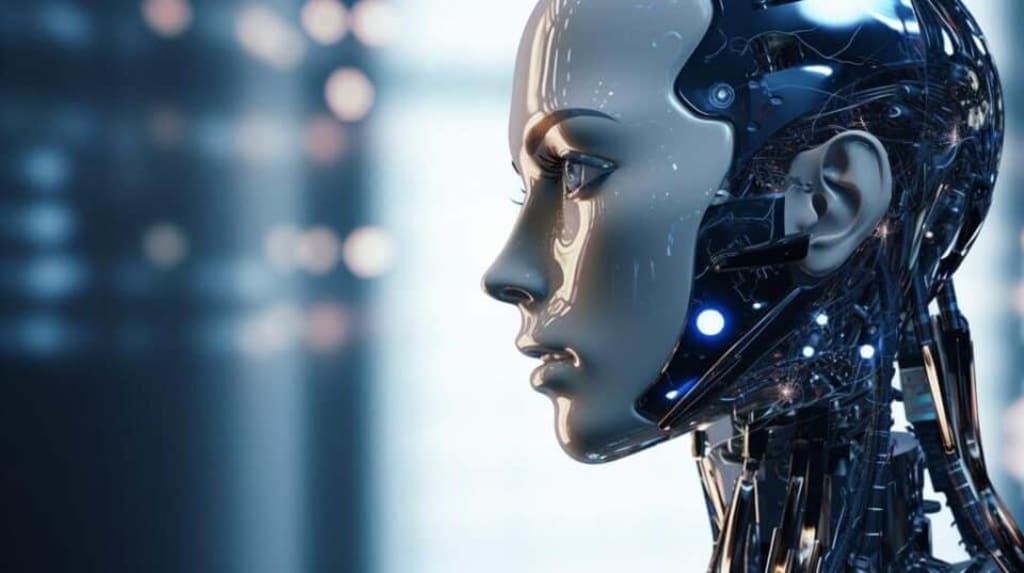Will Innovation Outperform Human Cerebrums?
Exploring the Frontiers: Balancing Progress and Ethics in the Age of Advancing Technology

In the consistently developing scene of innovation, an enthralling inquiry looms not too far off: Will machines outperform the complexities of the human cerebrum? As we witness uncommon headways in computerized reasoning (man-made intelligence), this question turns out to be more appropriate than any time in recent memory. While it could appear as though a plot from a sci-fi novel, the crossing point of innovation and human insight is a subject that researchers, specialists, and masterminds overall are effectively investigating.
Grasping Computerized reasoning:
Prior to digging into the possibility of innovation outperforming human cerebrums, getting a handle on the nuts and bolts of man-made reasoning is fundamental. Artificial intelligence alludes to the improvement of PC frameworks that can perform errands commonly requiring human insight. These errands envelop critical thinking, discourse acknowledgment, learning, and variation. Dissimilar to conventional projects, artificial intelligence frameworks can dissect huge measures of information, perceive designs, and work on their presentation over the long run.
Present status of artificial intelligence:
At this point, simulated intelligence has shown wonderful abilities in different fields. In medical services, computer based intelligence is supporting the finding of sicknesses and the advancement of customized therapy plans. In finance, it's improving misrepresentation identification and foreseeing market patterns. Simulated intelligence is in any event, turning into an imaginative power, producing workmanship, music, and writing.
In any case, in spite of these accomplishments, man-made intelligence stays a device created and directed by human personalities. It misses the mark on profundity of the capacity to appreciate individuals on a profound level, inventiveness, and nuanced understanding that describes human idea. While simulated intelligence can perform explicit errands with inconceivable speed and accuracy, it comes up short on comprehensive and compassionate methodology that characterizes human insight.
Hypothetical Prospects:
Specialists in the field of man-made reasoning frequently examine the idea of the "peculiarity" — a speculative point in the future where mechanical development becomes wild and irreversible. Some contend that at this crossroads, machines could outperform human insight, prompting flighty results.
Beam Kurzweil, a conspicuous futurist, has anticipated that by 2045, innovation will arrive where it outperforms human insight. He contends that the dramatic development of innovation, especially in artificial intelligence, will empower machines to imitate and ultimately surpass human mental capacities.
Challenges and Moral Contemplations:
While machines outperforming human minds raises captivating potential outcomes, it likewise presents huge difficulties and moral predicaments. One essential concern is the likely loss of occupations as robotization and man-made intelligence assume control over daily practice and mental undertakings. This shift could reshape whole enterprises, making a requirement for society to adjust to this developing innovative scene.
Moreover, there are moral contemplations encompassing the advancement of hyper-genius machines. Inquiries regarding control, responsibility, and the likely abuse of cutting edge artificial intelligence frameworks should be tended to. Finding some kind of harmony between mechanical advancement and moral obligation is critical to forestall potentially negative side-effects.
Human Benefits:
While innovation has taken colossal steps, it's fundamental to perceive the interesting qualities that people offer of real value. Human discernment includes the ability to understand people on a profound level, imagination, instinct, and a limit with respect to complex moral thinking — perspectives that machines, at their present status, battle to duplicate.
Besides, the capacity to frame profound relational associations, grasp complex social elements, and experience a large number of feelings are intrinsic to the human experience. These angles add to our capacity to explore the world with compassion, settling on choices that think about rationale as well as moral and moral aspects.
Cooperation, Not Rivalry:
As opposed to survey the ascent of machines as a danger, a more hopeful point of view proposes that what's in store lies in coordinated effort among people and man-made reasoning. Rather than an either-or situation, imagine a cooperative relationship where innovation supplements human capacities.
In this cooperative future, people could use artificial intelligence to improve their critical thinking skills, robotize tedious undertakings, and gain further bits of knowledge from huge datasets. Machines, thusly, would profit from human direction in understanding nuanced settings, going with moral choices, and exploring the complexities of human feelings.
End:
As we stand at the junction of mechanical progression and human cognizance, whether or not innovation will outperform human minds stays open. While man-made intelligence has taken striking steps, it is vital for approach this point with a nuanced viewpoint, recognizing the novel qualities that the two people and machines offer of real value.
What's in store is probably going to be formed by a sensitive dance between human imagination, the capacity to understand people on a profound level, and the unmatched computational capacities of computerized reasoning. As opposed to a contest, the cooperative energy among people and innovation likely could be the way to opening uncommon opportunities for progress and development in the years to come.
About the Creator
Rupankar Nandi
I'm a writer who explores fascinating topics and weaves captivating stories. From curious adventures to intriguing facts, I craft tales that spark imagination and curiosity. Join me on a journey of discovery!






Comments (1)
I'm a fan of this article; it's written well and packed with useful information.